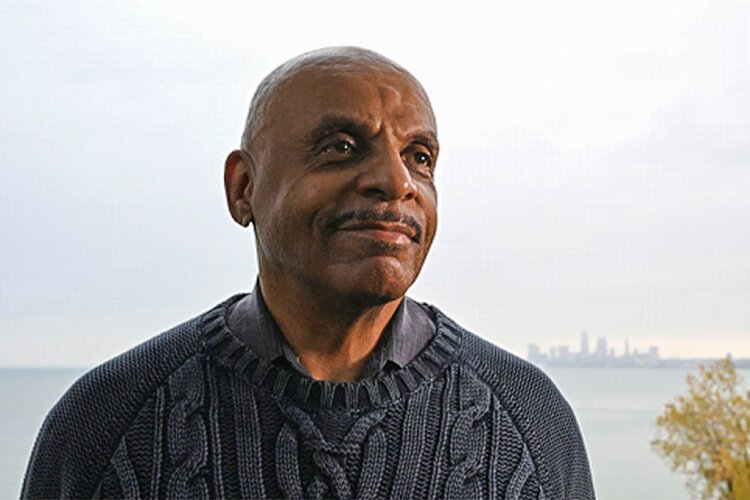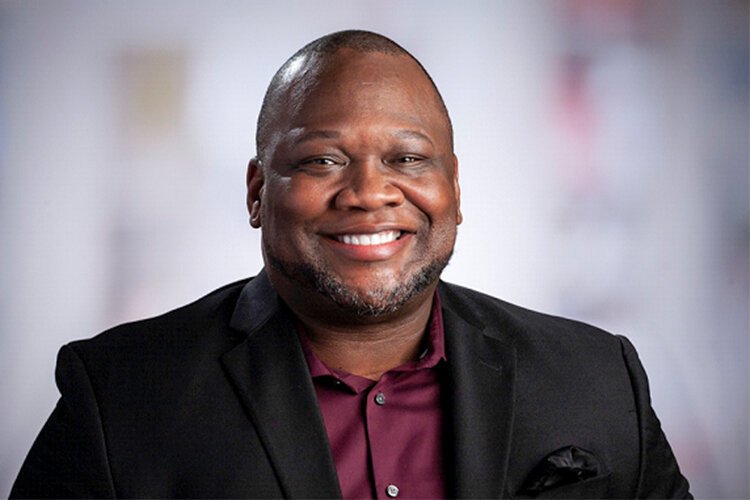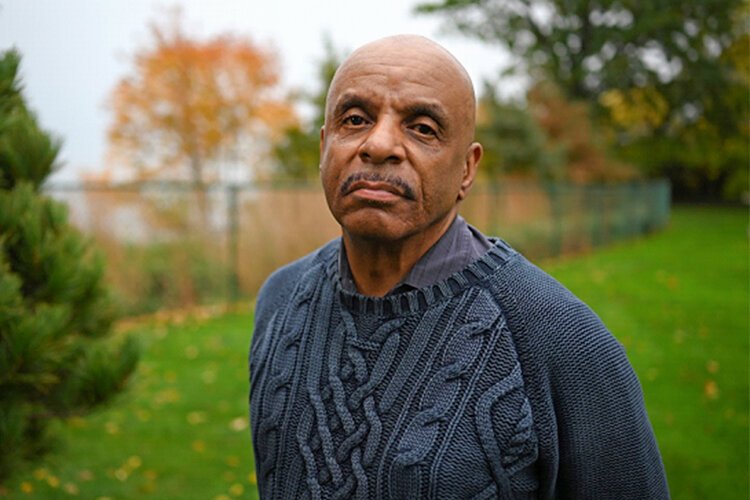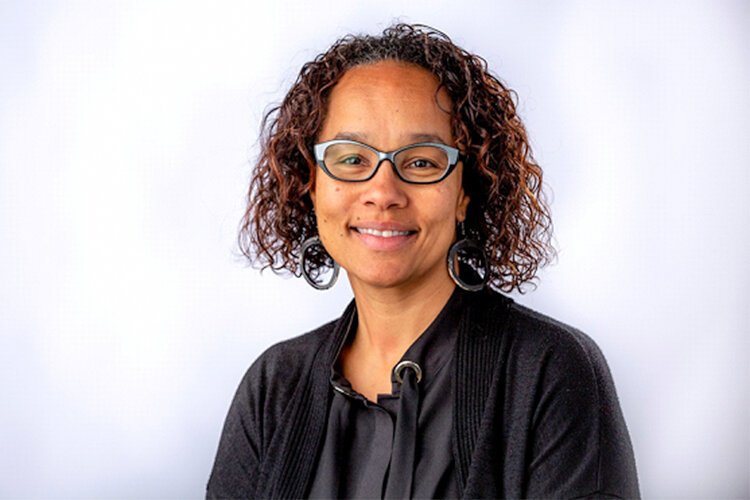HIV/AIDS Clinical Trial Network builds Black Clevelanders’ trust in COVID-19 studies
It took more than a decade of participation on the Community Advisory Board at University Hospitals’ Cleveland AIDS Clinical Trials Unit (ACTU) for Ray Allmond, who is Black, to understand the vital role he and other people of color can play by having a say in the clinical trial process.
Allmond’s initial motivation for joining the group was self-serving, he says: Newly diagnosed with HIV in 2000, he wanted to see if any of the research studies examining new treatments for the virus would benefit him.
But he’s come to understand how participation in the trial helps the larger community.
“Being on the [board] allows you to see and identify gaps in the community where there’s unmet need both from a health care perspective and a social services perspective as well,” says Allmond, 65.
 Ray Allmond, 65, is among 20-25 people who helped vet trials and has pivoted to doing the same for COVID-19-related trials.It took years of work, he says, to build up trust—through community education, awareness-raising efforts, and one-on-one conversations—to reach a point where Black Clevelanders are more willing to participate in trials aimed to treat and prevent HIV and AIDS.
Ray Allmond, 65, is among 20-25 people who helped vet trials and has pivoted to doing the same for COVID-19-related trials.It took years of work, he says, to build up trust—through community education, awareness-raising efforts, and one-on-one conversations—to reach a point where Black Clevelanders are more willing to participate in trials aimed to treat and prevent HIV and AIDS.
Now, top infectious-disease experts have turned to the HIV/AIDS clinical trial network, including community volunteers such as Allmond, to use their experience with building trust and participation in trials to help combat another virus ravaging the U.S. Black community: the novel coronavirus, or COVID0-19.
This time, though, with almost 220,000 deaths from COVID-19 in just eight months, there’s a sprint for a vaccine.
The web of 30 HIV and AIDS clinical trial sites globally—including in Cleveland and eight other North American cities—have for decades worked to grow confidence in communities of people devalued by society because of race, ethnicity, or sexual or gender identity, says Michele Andrasik,a behavioral scientist who leads engagement efforts at the Seattle-based Fred Hutchinson Cancer Research Center.
“If we want a vaccine that works for the most impacted people, we have to have the most impacted people in the trial,” says Andrasik.
This is true for HIV vaccines as well as for COVID-19 vaccines, which are being developed at a record pace.
Currently, about 60 coronavirus vaccines are in different stages of testing worldwide and at least three are enrolling or planning to recruit volunteers to participate in trials in the Cleveland area.
The HIV Vaccine Trials Network (HVTN) engagement model helped nearly double overall Black and Latinx enrollment in HIV vaccine clinical trials between 2002 and 2016 to about 33%.
In March, the network, including the Cleveland site, which is a collaboration between Case Western Reserve University and University Hospitals, was drafted for a quick pivot to COVID-19—a disease that research shows is disproportionately impacting people of color across the U.S.
Learning the scientific process
Cleveland’s ACTU has been active for more than 30 years, and its Community Advisory Board (CAB) was launched in 1990.
Robert Bucklew, ACTU outreach coordinator, has watched over the decades as the group worked to connect hard-to-reach communities to the scientific process of running and evaluating research studies.
The board has 20 to 25 regular participants; roughly half are Black, and some are past clinical trial participants, such as Allmond.
Members are introduced to the scientific process, including the steps researchers take to design and evaluate treatments and vaccines, Bucklew says, as well as what the trials will look like for those who participate.
“We explain the trials to them, and they do ask hard questions,” he says. “They are, wonderfully, in a scientific way, skeptical.”
The CAB’s guidance has led researchers to beupfront about failures of the past, such as the Tuskegee Syphilis Study, in which Black men were used to research the results of untreated syphilis without their permission.
It’s also led to more practical changes, including the elimination of medical jargon such as “assay,” instead of just saying “test.”
 Stephaun Wallace, a research epidemiologist who has worked on engaging communities in HIV vaccine trials, said trust building, particularly in communities that have been ignored or not valued, is essential.No guilt, just knowledge
Stephaun Wallace, a research epidemiologist who has worked on engaging communities in HIV vaccine trials, said trust building, particularly in communities that have been ignored or not valued, is essential.No guilt, just knowledge
One thing CAB members aren’t asked to do: directly recruit participants. “We don't put that burden on them,” Bucklew says.
That distinction is vital to generational change in how research is perceived and whether people, especially in minority communities, participate, says Stephaun Wallace, a research epidemiologist at Seattle’s Fred Hutchinson.
“When you are doing research with communities, it's a different frame than doing research on communities,” says Wallace, who has guided engagement efforts for the HVTN and is doing the same for the new COVID-19 Prevention Network.
Again, the goal, isn’t to persuade or guilt people into participating in research for the good of their communities.
“If individuals and families and communities have the appropriate information and they have access to our clinical research sites, then they are equipped to make their own decisions about how much or how little they want to be involved in these trials,” Fred Hutchinson’s Andrasik says.
Concerns over the COVID trials’ pace
Cleveland’s CAB was asked to weigh in on upcoming COVID-19 trials that will be enrolling participants, and members raised important questions, Bucklew says:
How can a process that takes three years in the world of HIV trials be done in only six months when it comes to coronavirus? And, how is that pace possible while keeping people safe?
“It’s being pushed so fast, and there are whole phases of trials that are being skipped,” Allmond says. “So, you have to question… what makes it that much different?”
Andrasik says Allmond’s reservations are consistent with what others have been expressed across the country.
“I think perhaps the greatest concern that we've heard is the perceived speed at which the trials are moving,” she says. “[There are] fears about cutting corners, about compromising safety.”
So far, 11% of the 430,000 people who registered as potential volunteers for trials identify as Black/African American or Latinx, according to a spokesperson for the HIV network. Registration doesn’t ensure a person is enrolled in a vaccine trial.
That enrollment is still short of reflecting the percentage of infections in communities where the disease is causing disproportionate harm. But it is higher than average enrollment for Blacks or African Americans in other large clinical trials, which was about 14%, according to a 2017 U.S. Food and Drug Administration report.
Allmond also says he worries that the pace of COVID-19 vaccine development doesn’t allow the time for the type of relationship building it would take to quickly increase enrollment.
“That [lack of] trust… that’s not going to go away anytime soon—It’s going to take years,” says Allmond. “It’s definitely not going to happen on the schedule that they want this ‘warp speed’ trial to happen.”
This series is a partnership between the Northeast Ohio Solutions Journalism Collaborative, which FreshWater is a part of, and The Cleveland Observer. It is presented as part of ideastream's Coping With COVID-19 project, which is funded by the Third Federal Foundation and University Settlement.


